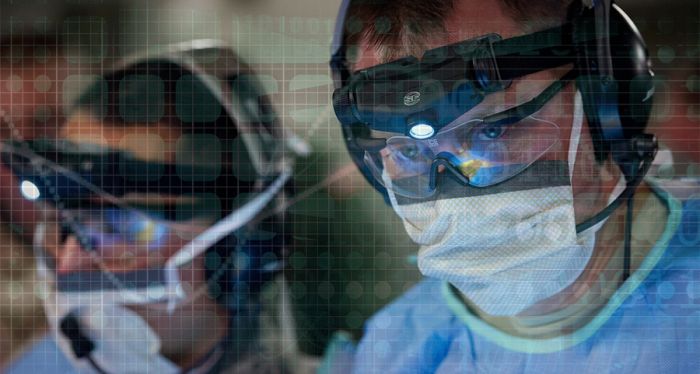Is it safe for healthcare to go hybrid?
Views, News & more

You don’t have to be an avid follower of technology news to be aware of the cyber attack that downed internal NHS systems across the country in May 2017. This completely unexpected hack of some of the most crucial IT systems in the country has shaken many healthcare-based IT bosses into considering the use of cloud services, but is it really safe for healthcare to go hybrid?
Considering concerns
The healthcare sector is slowly beginning to trust modern technology.
Perhaps the clearest indication of the growing trust in new technologies is provided by the take-up in cloud solutions – an area where the industry has previously struggled to keep up but is now beginning to adapt to change.
Right across the globe, both large and small healthcare organisations are steadily moving some of their networks and peripheral services to the cloud. Ed McCallister, senior vice president and CIO at the University of Pittsburgh Medical Center (UPMC) says that many healthcare organisations have now shed their fear of cloud use and are embracing its benefits. "People are actually embracing [the cloud] in healthcare," he said. "Now is the time [for cloud computing]. ... I've been in healthcare pretty much my entire career, and this is absolutely the most transformative time."
However, lingering concerns over cloud computing have resulted in many people questioning its place in the healthcare system, where patients lives can literally depend on data.
Many hospital executives have questioned whether or not hybrid computing can really boost security and reliability in an environment where these factors are so crucial. Others are waiting for proof on its cost-effectiveness.
However, others have suggested that healthcare organisations should take a double pronged approach to data storage, partially moving data to the cloud while ensuring disaster recovery strategies are well defined in case of future attacks.
Growing trust
Despite concerns, hybrid appears to be displaying the most significant growth in popularity among hospital CIOs, who suggest it offers the perfect combination of off-site data storage services and traditional on-site legacy IT systems. Specifically, hybrid allows IT departments to become more focused and efficient, making this approach the most cost effective, scalable option for a fast paced healthcare environment in need of easy access to data.
Many experts have suggested that cloud tech could also revolutionise the healthcare industry on a patient level, providing patients with access to digital health services that could enhance their experience. Dr Park Yoo-rang of Health Innovation Big Data Center in Seoul Asan Medical Center, South Korea, said: Three quarters of patients may use digital health services in the future. Digital technologies will enable precision medicine with more detailed information than ever before, with big-data pattern recognition over continuous monitoring.”
A future for hybrid?
Although hybrid computing may have an uncertain long-term future in healthcare, it’s clear that growing use is fostering growing trust, resulting in an increasing number of CIOs and IT professionals testing the use of cloud technology within their health IT systems. While this process may be slow, it will eventually lead to greater security and reliability in healthcare-based cyber security, as well as easier access for healthcare professionals in need of immediate access to life-saving data.
Get in touch
020 7847 4510
We may process your personal information in order to send you information you request, measure and improve our marketing campaigns, and further our legitimate interests. For further details, see our privacy policy.
Contact us
-
- Head Office:
- hSo, 50 Leman Street, London, E1 8HQ
- Switchboard:
- 020 7847 4500
- Support (24x7):
- 0333 200 3337
- support@hso.co.uk
- Marketing & Sales:
- 020 7847 4510
- info@hso.co.uk

















